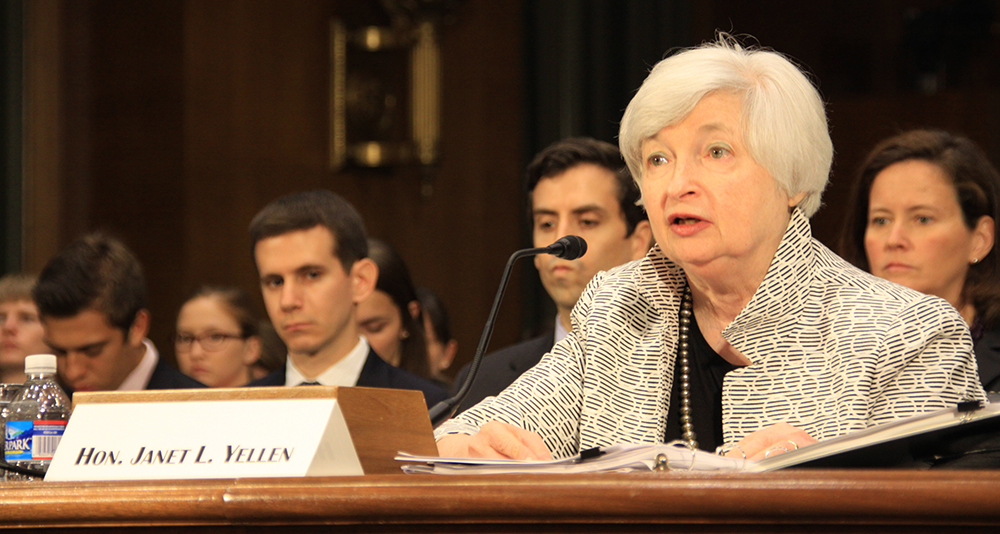WASHINGTON — Federal Reserve Chairwoman Janet Yellen expressed confidence in the U.S. economy Wednesday, signaling the Fed may increase interest rates in mid-December for the first time since the recession hit in 2008.
The Federal Open Market Committee will meet on Dec. 15 and 16.
“It is a day that I expect we all are looking forward to,” Yellen said with a smile as she ended her speech at the Economic Club of Washington, although she cautioned that the decision will also depend on new economic data to be released before the meeting.
“Ongoing gains in the labor market, coupled with my judgment that longer-term inflation expectations remain reasonably well anchored,” Yellen said, “serve to bolster my confidence in a return of inflation to 2 percent as the disinflationary effects of declines in energy and import prices wane.”
Yellen anticipated the economy will generate more jobs even though the October job report showed the best job growth this year, with 271,000 jobs added and unemployment down to 5 percent.
At its September meeting, the FOMC participants projected the long-term normal rate of unemployment to be around 4.9 percent.
“Despite these substantial gains, we cannot yet, in my judgement, declare that the labor market has reached full employment,” Yellen said.
In a stronger job market, about 2 million people who have stopped looking for work due to the weak economy would resume their job hunt and more part-time employees would be able to find full-time jobs, she said.
The Fed did not raise rates in its September meeting due to its concerns about China’s stock market turmoil in August. But Yellen said China’s economic slowdown would “continue to be modest and gradual,” and China has already taken actions to stimulate its economy.
Inflation has been below the 2 percent target. But Yellen said factors such as low oil prices and weak foreign export demands will diminish next year and noted the risks from foreign economies “have lessened since late summer.”
Interest rates have been at about zero since 2009 when former Fed Chairman Ben Bernanke adopted quantitative easing. Yellen said QE has been “effective.” Without it, she said, the unemployment rate would be over 6 percent.
Yellen said that should the Fed raise rates, U.S. monetary policy would “remain accommodative.”

